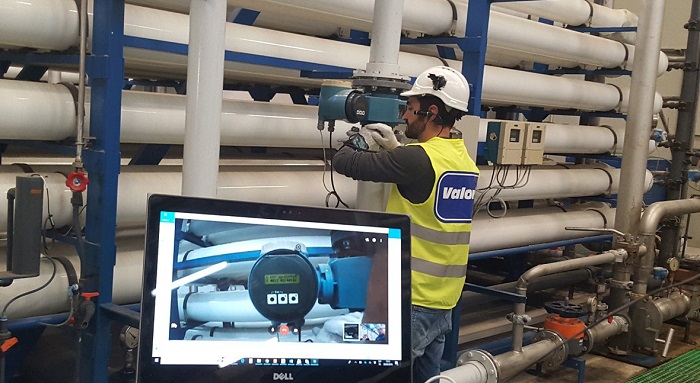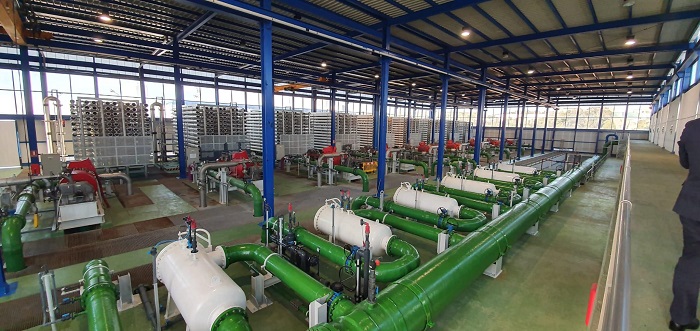In an industrial environment such as ours, enormous amounts of data are generated and almost any process can be optimized with the application of analytical models and algorithms.
Sacyr Agua/Sacyr Water takes it a step further and through Sacyr Digital, a corporate global initiative, applies artificial intelligence to solve situations in advance and improve decision-making in management.
"We consider what can be changed in how we generate the expected volume of water to be consumed: weather, use, industry requirements, etc... We can respond to future demand, by producing water in periods when energy is cheaper", explains Noe Meana, technical director of Sacyr Agua/Sacyr Water.
"At Sacyr Aquama, we have a registry of the consumption of all the users of our services in recent years. So, we asked ourselves the following question: Can we create an intelligent system that predicts the demand for each subscriber in advance, beyond the analysis of the data that current platforms incorporate?

We also set ourselves the challenge of enriching our data with external sources that affect consumption such as climatic variables, for example, relative humidity, maximum temperature or wind.
This is what we already have and to achieve it, we have relied on different technologies, all of them on Azure Cloud:
In the data ingestion (structured or raw) to Azure we have used Azure Data Factory. This tool allows us to both access Sacyr Aquama and invoke Google APIs to obtain the weather data.
These data arrive to our Azure Data Lake Storage for persistent storage from where it will be accessed by another solution such as Databricks, which is the data engineering tool capable of processing and transforming massive amounts of data, as well as exploring the data through machine learning models.
This will ultimately generate consumption forecasts that we can integrate into our operational systems or analyze using the Azure Power Bi data discovery solution," explains Oscar Cuevas.
Technology allows us to make an intelligent leakage control, by acting quickly and even anticipating a situation to avoid the loss of a resource, repair and maintenance costs, etc...

Artificial intelligence can also help us make an efficient management of the network pressure with pressure transducers. "You can incorporate other signals that give you data in a predictive way, thus optimizing water pumping," Meana explains.
"We should strive to have a smart grid where IoT technologies can be applied, with many sensors that continuously measure and monitor what is happening. There are also AI algorithms that are continuously analyzing and finding new patterns that provide predictive models that allow us to adapt energy production, leak detection or the replacement of devices; which are some of the challenges in water management. Digitalization is sustainability," explains Oscar Cuevas.
The same goes for water-leak sensors, devices that record sound. From the noise analysis, we can interpret if there are any leaks, which -if small- could go unnoticed in the flow measurements.
"We really have very powerful digital tools at our disposal that have direct application in countless business processes. For example, in a wastewater treatment plant where there is a biological process with microorganisms that can degrade organic matter, we use oxygen, which consumes a lot of energy. Depending on these parameters, you can make a constant operation with the appropriate equipment. For example, the automation of the valves, which make these bubbles, an efficiently regulated turbocharger, etc., are all resources that allow to manage the process more efficiently," says Noe.
Water management is energy-intensive, and technology allows us to optimize consumption, which translates into more sustainable solutions.
